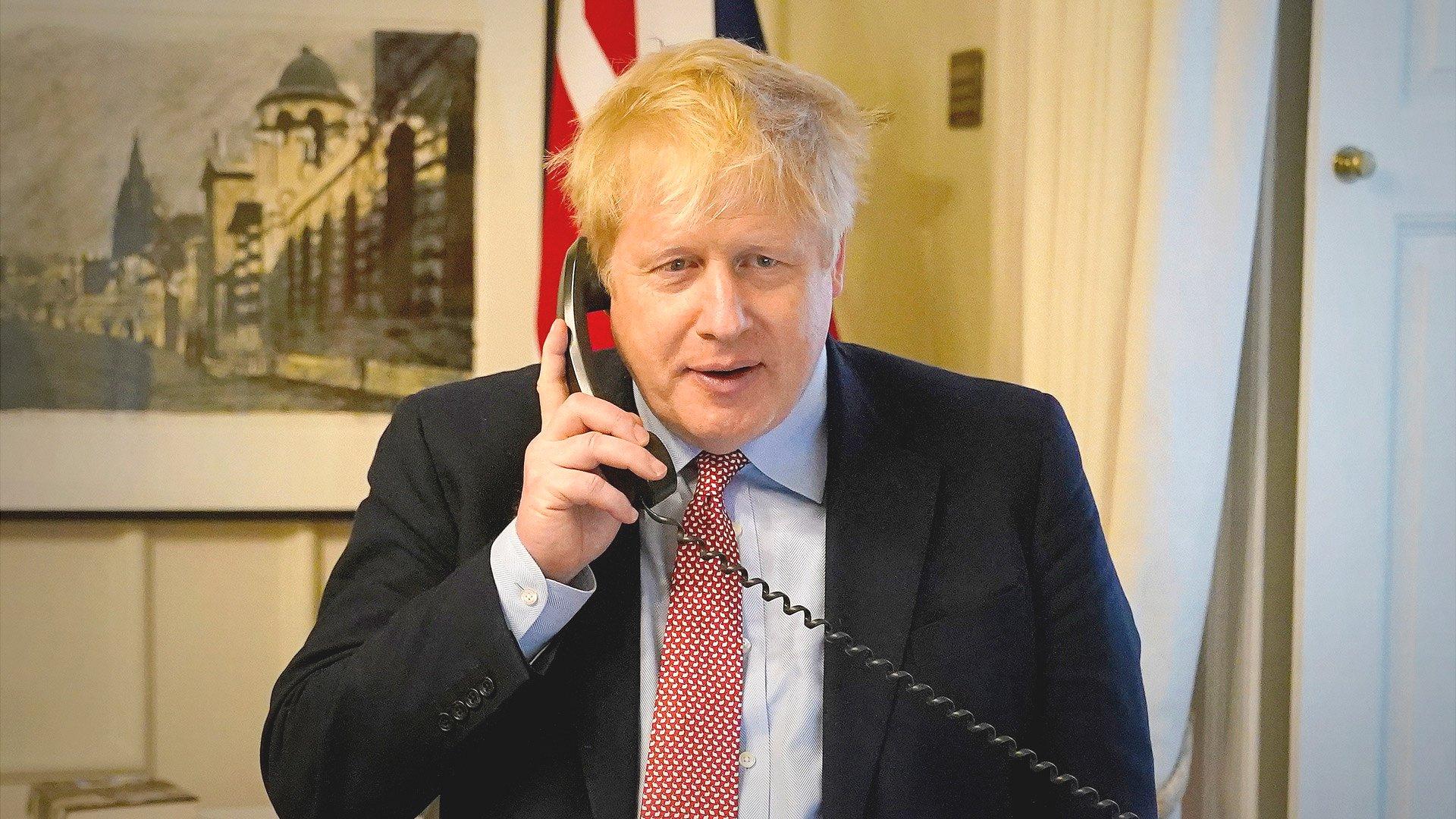Coronavirus: Boris Johnson 'responding to treatment' in intensive care
- Published
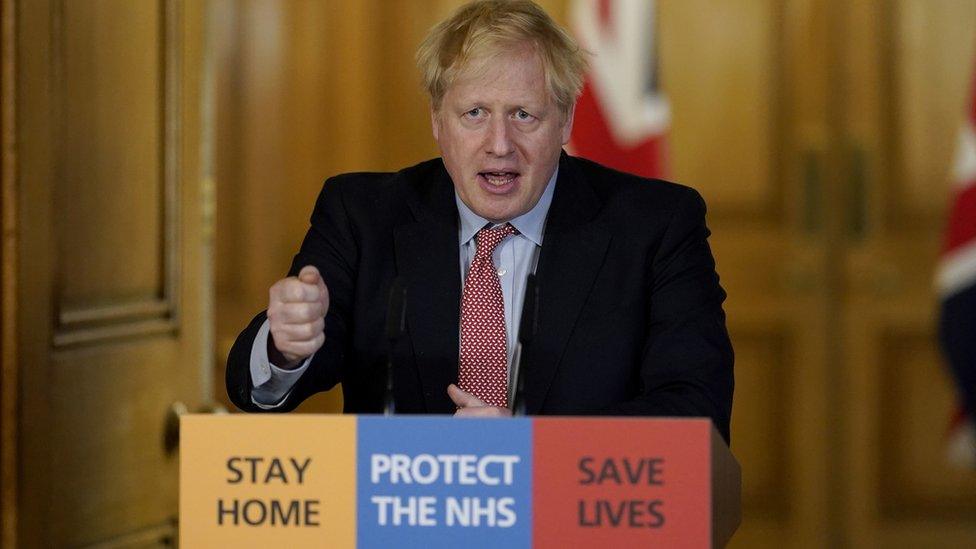
Boris Johnson is "responding to treatment" for coronavirus as he approaches a fourth night in hospital.
The prime minister was being kept in St Thomas' Hospital in London "for close monitoring" and remained clinically stable, his official spokesman said.
Downing Street said he was not working but could contact those he needed to.
The number of people to die with the virus in UK hospitals has increased by a record 938 in a day, according to the latest Department of Health figures, external.
The total death toll now stands at 7,097.
It comes after No 10 said a review of lockdown rules would go ahead next week, but the public must "stick with" the measures at what was a "critical time".
A ban on public gatherings of more than two people and the closure of shops selling non-essential goods were among the series of restrictions announced by Mr Johnson on 23 March to tackle the spread of coronavirus.
Downing Street said a relaxation of the rules would be considered "on or around" the three-week mark on Monday.
According to the government's coronavirus legislation, external, the health secretary must review the need for restrictions at least once every 21 days, with the first review to be carried out by 16 April.
But health minister Edward Argar said the peak in cases must pass "before we can think about making changes", adding: "It's too early to say when we will reach that peak."
The lockdown in Wales will be extended and not lifted next week, First Minister Mark Drakeford has confirmed.
BBC assistant political editor Norman Smith said it seemed "likely" the rest of the UK would follow suit, external.


A SIMPLE GUIDE: How do I protect myself?
AVOIDING CONTACT: The rules on self-isolation and exercise
LOOK-UP TOOL: Check cases in your area
MAPS AND CHARTS: Visual guide to the outbreak

The prime minister was admitted to St Thomas' on Sunday, on the advice of his doctor, after continuing to have a cough and high temperature 10 days after testing positive for the virus. The prime minister was given oxygen before being taken to intensive care on Monday.
Downing Street said Mr Johnson was in "good spirits" on Wednesday as he continued to receive standard oxygen treatment. He was breathing without any assistance, such as mechanical ventilation or non-invasive respiratory support.
The Queen and other senior royals, external sent messages to Mr Johnson's family and his pregnant fiancee, Carrie Symonds, saying they were thinking of them, and wished the PM a full and speedy recovery.
Foreign Secretary Dominic Raab, who is deputising for Mr Johnson, said on Tuesday he was "confident" the PM would recover from this illness, describing him as a "fighter".


In the latest figures across the UK:
The total number of people who have died with coronavirus in English hospitals is 6,483, a rise of 828 on the previous 24 hours
Scottish First Minister Nicola Sturgeon said 70 people had died with the virus in Scotland in the last 24 hours, bringing the total to 366. Scotland has changed the way it counts deaths to include deaths where the virus was a probable contributing factor - and people who were not in hospital when they died
In Wales, 33 more people have died after testing positive for the virus, bringing the Welsh death toll to 245. Public Health Wales said case numbers would be "lower than usual" on Thursday as officials move back the time when they count new cases
Five more deaths in Northern Ireland brings the NI total to 78
The latest UK-wide figures - which use a different timeframe to those of individual nations - said the number of coronavirus hospital deaths rose to 7,097 on Wednesday- a record increase of 938 compared with 786 on Tuesday.
However, the government's chief scientific adviser Sir Patrick Vallance told Tuesday's Downing Street briefing the number of coronavirus cases in the UK "could be moving in the right direction".
As of 9:00 BST on Wednesday, 232,708 people had been tested for coronavirus, of which 60,733 tested positive, the department said.
Spikes or dips in recorded cases and deaths may in part reflect bottlenecks in the reporting system, rather than real changes in the trend.
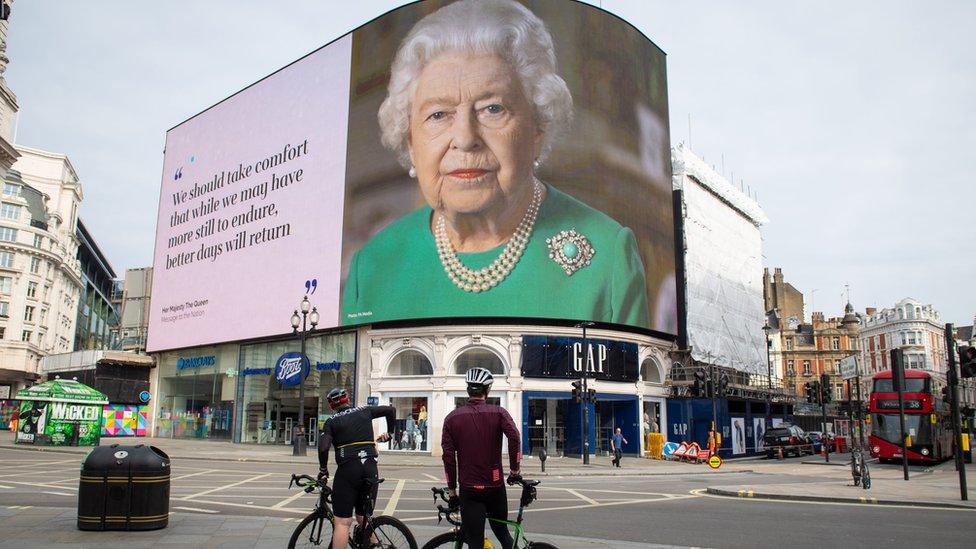
A photo of the Queen and quotes from her Sunday speech are shown at Piccadilly Circus
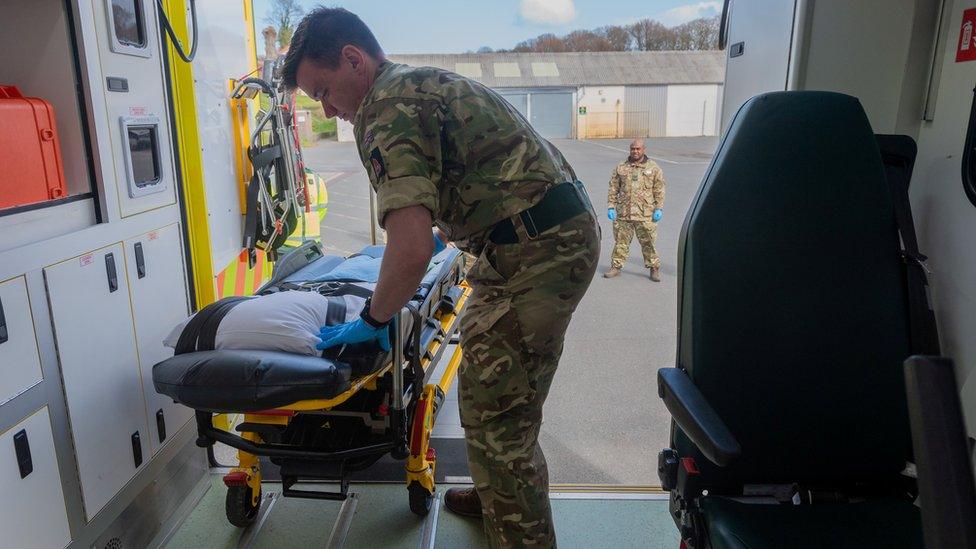
The armed forces are helping ambulance services, including the Welsh Ambulance Service NHS Trust
Ahead of a spell of sunny weather forecast in some parts of the UK later this week, Mr Argar urged people to stay at home "however lovely the weather this Easter weekend".
"If we are, as the statistics appear to show, making a little bit of progress, now's the time to hold to it," he told BBC Breakfast.
Regarding a review of lockdown measures, he said: "We need to start seeing the numbers coming down and that's when you're in the negative.
"That's when you have a sense when that's sustained over a period of time, that you can see it coming out of that. We're not there yet and I don't exactly know when we will be."
Mayor of London Sadiq Khan told BBC Radio 4's Today programme: "I think we're nowhere near lifting the lockdown.
"We think the peak - which is the worst part of the virus - is still probably a week and a half away."
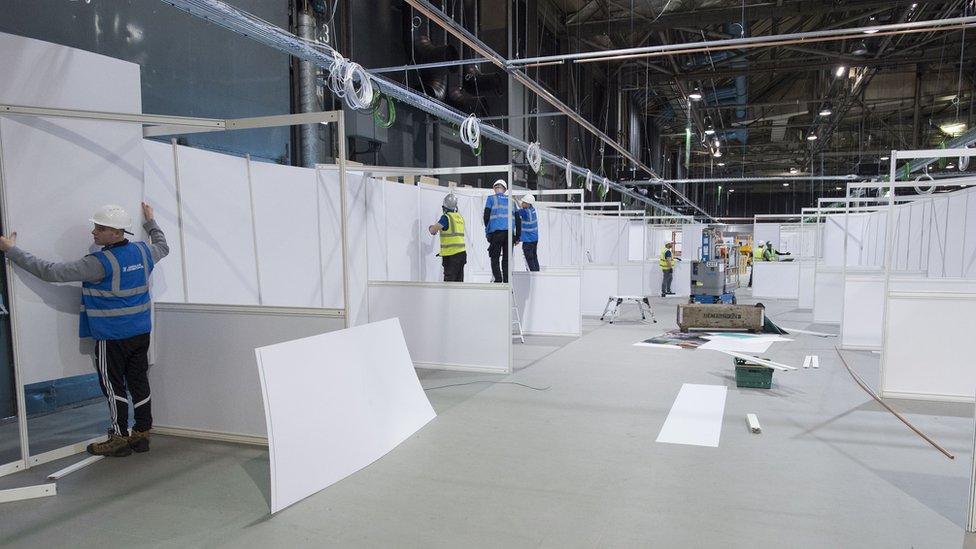
Workers are building the new NHS Louisa Jordan Hospital in the SEC in Glasgow
Manchester Central conference centre has been converted into a new hospital
Meanwhile, the first patients have been admitted to the NHS Nightingale Hospital in east London - a temporary facility set up at the ExCel conference centre.
The admissions come two weeks after the hospital with a planned capacity of 4,000 was formally announced - although an NHS spokesperson stressed limits had not been reached at other sites in London.
The second NHS Nightingale Hospital, at the National Exhibition Centre in Birmingham, is to be opened on Friday, Downing Street said. It will have capacity for up to 2,000 patients if needed.
The prime minister's official spokesman added a third Nightingale Hospital was expected to open in "the next week or so" in Manchester.
The armed forces are working on plans to build a further five temporary hospitals to deal with the pandemic, BBC defence correspondent Jonathan Beale said.
There are plans to build up to 17 temporary hospitals if needed.
In other developments:
Fifteen residents have died at a care home in Luton - five of whom had the virus while the 10 others were not tested. The local council leader said it was a "tragic situation"
Documents have been held in place by windscreen wipers and signed on a car bonnet in a novel way for wills to be witnessed during social distancing
Friends and family have been paying tribute to 29-year-old Rebecca Mack, a former children's cancer nurse at the Royal Victoria Infirmary in Newcastle, who died on Sunday after contracting the virus a few weeks ago
CrimeStoppers has passed on more than 500 tip-offs to police across the UK about people breaking lockdown rules - including people with the virus being spotted outdoors, threats to infect or cough at people, and parties being planned on social media
In London, 14 public transport staff have died from the virus, including nine bus workers. The mayor said some buses were trialling allowing passengers to get on the bus only through the back doors to avoid going near the driver
Supermarket Tesco said most food would still need to be bought in store as it was not able to meet home delivery demand, while Sainsbury's said it was removing restrictions on thousands of products as stock levels recover
The months-long lockdown in the city of Wuhan in China's Hubei province - where the coronavirus pandemic started - has been lifted
The US recorded the most coronavirus deaths in a single day with 1,736 fatalities reported on Tuesday. Country music singer-songwriter John Prine was among those to have died

How have you been affected by the issues relating to coronavirus? Share your experiences by emailing haveyoursay@bbc.co.uk, external.
Please include a contact number if you are willing to speak to a BBC journalist. You can also contact us in the following ways:
WhatsApp: +44 7756 165803
Tweet: @BBC_HaveYourSay, external
Send pictures/video to yourpics@bbc.co.uk, external
Please read our terms & conditions and privacy policy
- Published7 April 2020
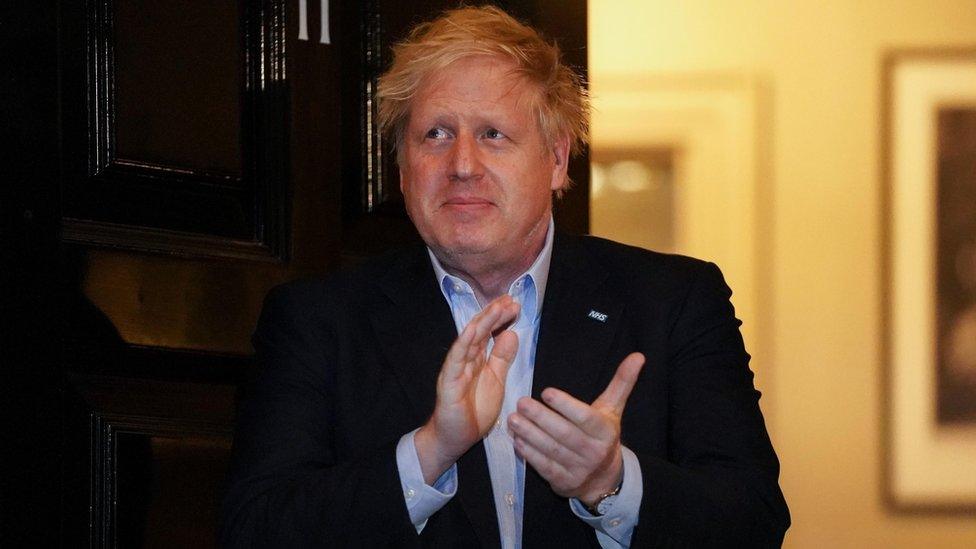
- Published7 April 2020
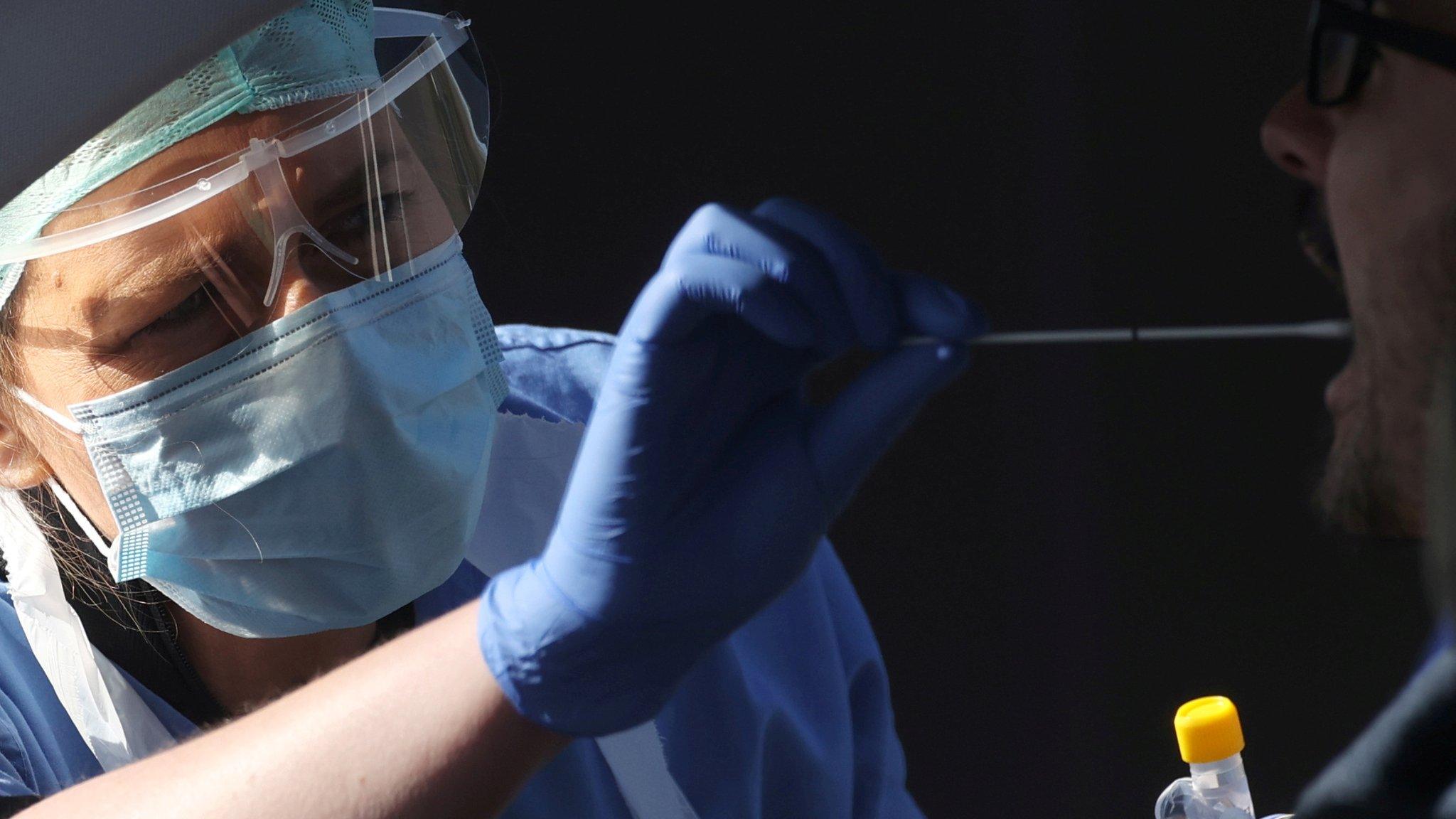
- Published16 April 2020

- Published7 April 2020
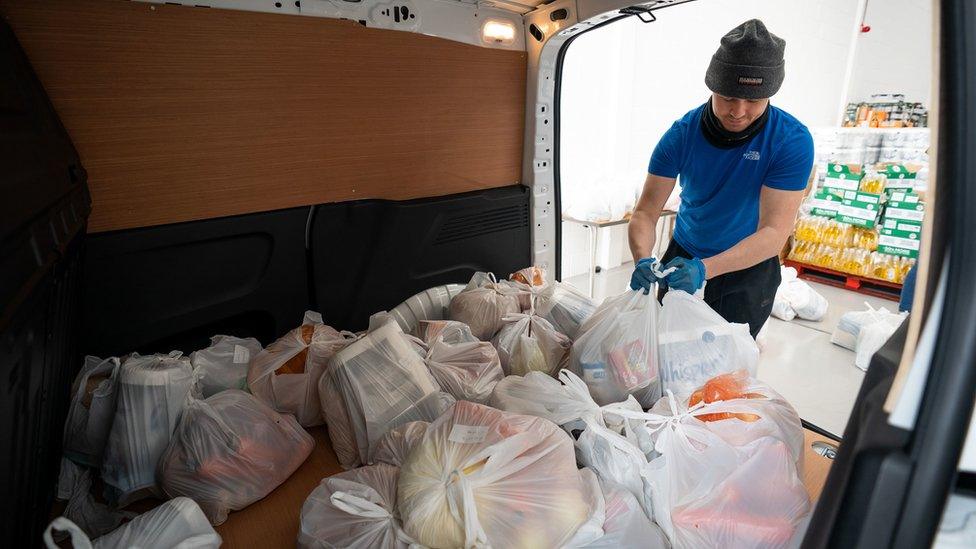
- Published7 April 2020
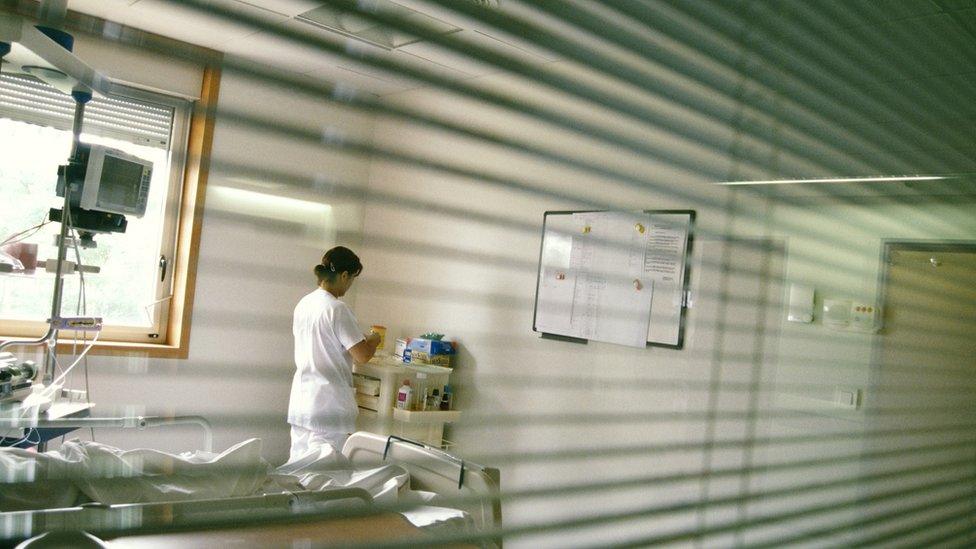
- Published6 April 2020
- Published6 April 2020
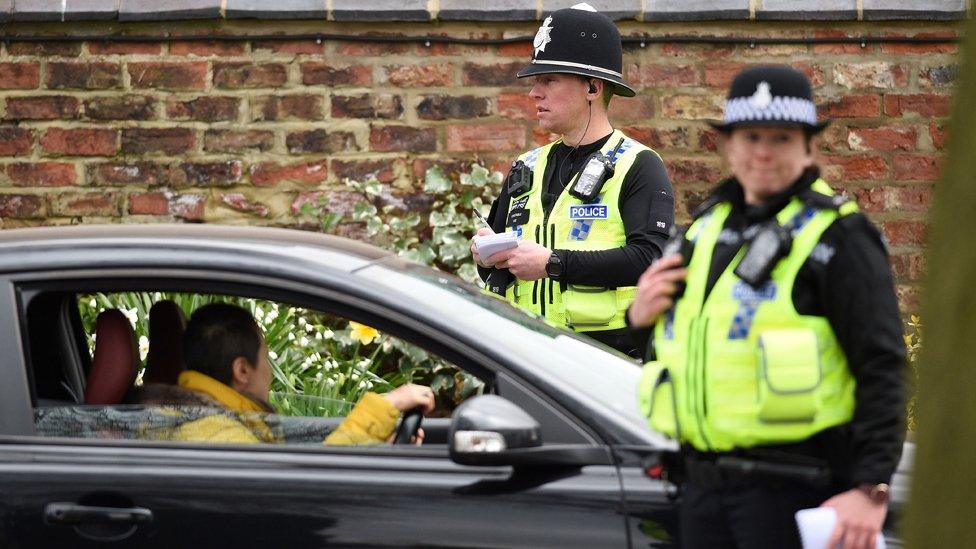
- Published6 April 2020
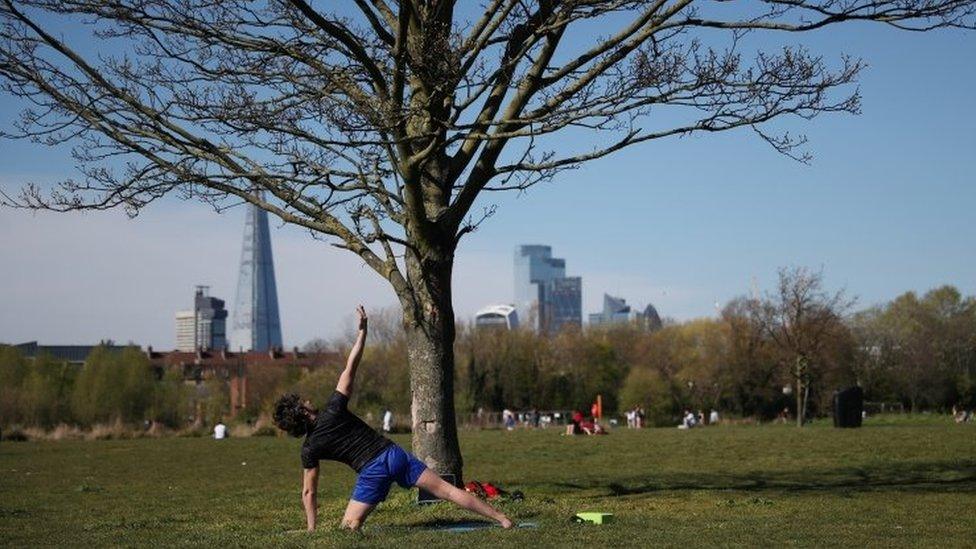
- Published15 April 2020
